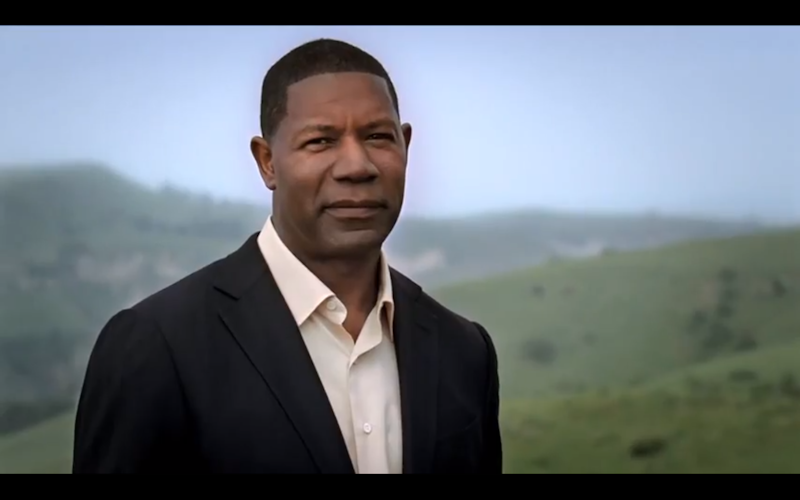The actor Dennis Haysbert is black, and he sounds black: his voice is deep and resonant, like raw molasses. There's something reassuring about it; something strong and staunch. Hearing him orate famous speeches from world history or phone books would be awesome. I don't go in for transgendered S&M fiction, but if someone handed me an audiobook of Dennis Haysbert reading a literary classic from the transgendered S&M canon, I'd probably listen to it. This despite never having watched an entire feature film or television episode where Dennis Haysbert was featured prominently. Heat remains compulsively rewatchable, but doesn't really count. Such, then, is the power of advertising.
These days, Dennis Haysbert doesn't show up on Allstate Insurance commercial sets in calm, voice-of-reason spokesman mode; rather, his voice is painstakingly dubbed over the voices of non-black people who circumstances reveal as Allstate customers. The idea is that some sort of transference transpires when one dumps Geico or Progressive for Allstate, that the measured, nuanced essence of Haysbert inhabits one as a demon overtakes and occupies a human host; if you've seen The Exorcist, you're well aware of how discomforting an experience this can be. The main difference, here, is that Haysbert is not wrestling with the host's soul for control of the host; Haysbert only asserts himself and telegraphs his presence when someone gets into an auto accident or the conversation turns to insurance.
If the superficial subtext of these commercials is "isn't it weird that these people, who are white, seem to be possessed by the spirit of Dennis Haysbert, like how Anthony Michael Hall lapsed into that weird old blues guy voice in two John Hughes movies," the deeper subtext might be "why would that be weird, aren't we all people, are not our differences and peculiarities the seasoning that keeps life interesting and flavorful?" In other words, the advertisements ask the viewer to ask why this is weird, to re-examine one's ideals of racial inappropriateness and fair play in the context of the world we live in now. What kind of weirdness are we grappling with here? It the simple awkwardness of juxtaposition, of fucking around with what expectations based on sense data? That wears off after a few viewings, and we're left with the fact of what we're seeing and hearing.
A thoroughly modern thinker—and I doubt such an animal or ideal truly exists—is bored silly with these commercials, because they simply are: they've no edge. My favorite one of these features a white woman and a white man, and the sub-subtext is that the spot smacks down the truism that women are worse drivers than men. And after the woman, occupied by Haysbert, which we've decided is more mildly humorous than uncomfortable, remember, puts the man on the spot, the man tries to retort, to which the white woman/Haysbert responds "silence." It's funny, mildly, but I'm always left wishing the writing team had taken one step further into the bizarre. Why not "silence, whelp." One word is all it would've taken to make that commercial classic. One little word.

